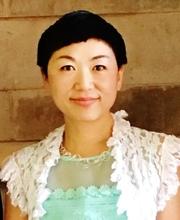Thus Spoke the Modern Daoist Kafka Kafka—moderner Daoist ohne Kompromisse 卡夫卡续写老庄
Huiwen Helen Zhang - Wellspring Associate Professor of Chinese & Comparative Literature, The University of Tulsa
This talk challenges the audience to decipher one of the most astonishing cross-cultural enigmas: How, through transreading—which integrates lento reading, poetic translation, creative writing, and cultural hermeneutics—Franz Kafka transplants the seed of Dao and nurtures it in a European mind. Distinct from the approaches of his contemporaries, Kafka’s Dao is a patience game with words and thoughts maneuvered like marbles. Not only does Kafka’s game echo the voices of ancient Chinese poet-philosophers Laozi and Zhuangzi, but it also delivers their messages in an uncompromising way that informs and inspires.
Huiwen Helen Zhang (PhD, Universität Erlangen-Nürnberg; BA & MA, Peking University) is Wellspring Associate Professor of Chinese & Comparative Literature at the University of Tulsa. She has given invited lectures and seminars in English, German, and Chinese, in the United States, Canada, England, Denmark, Sweden, Poland, Lithuania, Germany, Austria, and China.
Dr. Zhang identifies herself as a transreader—a lento reader, poetic translator, creative writer, and cultural critic in one. Transreading is an interdisciplinary method that she has developed to explore how history, literature, philosophy, and art generate and reshape one another. Dr. Zhang utilizes transreading in her first book, “Kulturtransfer über Epochen und Kontinente” (Gruyter 2012), to explore how Feng Zhi transformed a gory legend of revenge from 400 BCE into a lyrical allegory of the 1940s wartime generation’s search for home; in her latest publication, “Mu Dan’s Poetry as a History of Modern China” (Oxford 2018), to illustrate poetry as a source for historical studies; and in her second book, “Transreading: A Common Language for Cultural Critique” (under contract), to engage those whom she terms “transreaders of modernity”: Kierkegaard, Nietzsche, Strindberg, Kollwitz, Döbin, and Lu Xun.
Dr. Zhang’s new book project, “Kafka’s Dao: The Patience Game,” demonstrates how, through transreading, Kafka transplants the seed of Dao and nurtures it in a European mind, and how we should transread Kafka in the way he transreads ancient Chinese poet-philosophers.
Publication Links
“Kulturtransfer über Epochen und Kontinente” (Gruyter 2012)
https://www.degruyter.com/view/product/181657
“Mu Dan’s Poetry as a History of Modern China” (Oxford 2018)

